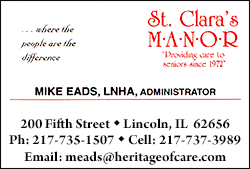|
 An aide to the U.S. House Committee on Oversight and Government
Reform told Reuters that National Institutes of Health officials
have agreed to give an in-person briefing to the committee after
questions were raised by lawmakers over its grants to the
International Agency for Research on Cancer (IARC), a
semi-autonomous part of the WHO based in Lyon, France. An aide to the U.S. House Committee on Oversight and Government
Reform told Reuters that National Institutes of Health officials
have agreed to give an in-person briefing to the committee after
questions were raised by lawmakers over its grants to the
International Agency for Research on Cancer (IARC), a
semi-autonomous part of the WHO based in Lyon, France.
The hearing will be in private, with NIH officials answering
questions from committee investigators, the aide said.
The committee is working with the NIH to schedule the briefing soon,
the aide said, but no date has yet been set.
The briefing comes after the committee's chairman added his voice to
growing concerns among some senior U.S. lawmakers about the way IARC
reviews and classifies substances.
In recent years IARC has caused controversy over whether such things
as coffee, mobile phones, processed meat and the weed killer
glyphosate cause cancer.

Its critics, including in industry, say it is sometimes too quick to
conclude that substances might cause cancer, causing unnecessary
health scares. It defends its methods as scientifically sound.
In a Sept. 26 letter to NIH director Francis Collins, Oversight
Committee Chairman Jason Chaffetz describes IARC as having "a record
of controversy, retractions, and inconsistencies" and asks why the
NIH, which has a $33 billion annual budget, continues to fund it.
"IARC's standards and determinations for classifying substances as
carcinogenic, and therefore cancer-causing, appear inconsistent with
other scientific research, and have generated much controversy and
alarm," Chaffetz wrote.
The NIH confirmed in an email to Reuters that it had received
Chaffetz's letter and "will respond directly to the committee".
The WHO referred Reuters to IARC for comment. A spokeswoman for IARC
told Reuters that Chaffetz's letter contained "misconceptions" which
IARC's director, Chris Wild, has sought to address in a letter of
his own to the NIH director.
Wild's letter, dated Oct. 5 and copied via email to Reuters on
Thursday, rejects Chaffetz's criticisms and says IARC's
classifications, known as "monographs", are "widely respected for
their scientific rigor, standardized and transparent process and ...
freedom from conflicts of interest".
Wild also defends IARC's evaluation of coffee and disputed
Chaffetz's description of it as a "retraction". IARC's previous
assessment of coffee as "possibly carcinogenic" was updated in June
this year, when IARC said it had found "no conclusive evidence for a
carcinogenic effect".
"The (coffee) report in 2016 was not a 'retraction' but a
re-evaluation based on an additional 25 years of scientific
evidence," Wild said.
FULL DISCLOSURE
Chaffetz, however, asks the NIH to detail its standards for awarding
grants and the vetting and oversight of grantees. It also asks for
full disclosure of NIH funds to IARC or money spent in relation to
IARC's activities.
[to top of second column] |

Questions over grants awarded by NIH to IARC could put a significant
portion of IARC's funding at risk.
IARC's resources are relatively modest. Its 2014 revenue was about
30 million euros ($33 million).
In his letter, Chaffetz's cites the NIH's grant database as showing
that it has given IARC more than $1.2 million so far this year. The
database also shows that since 1992, NIH grants to IARC have totaled
some $40 million.
The American Chemistry Council also joined those voicing concern,
issuing a statement following Chaffetz's letter accusing IARC of "a
long history of passing judgment on substances through a
fundamentally-flawed process that yields questionable results".
"We welcome the interest of the House Committee ... and hope it will
shed light on the close and somewhat opaque relationship between
IARC and NIH, including the use of taxpayer dollars and resources to
support IARC's activities," it said.
IARC is also in dispute with the European Food Safety Authority (EFSA)
and United Nations and United States regulators over glyphosate, a
widely-used weedkiller developed by Monsanto.
IARC says glyphosate is "probably carcinogenic", while EFSA and
several other regulators say it isn't.
This dispute prompted Robert Aderholt, chairman of the U.S.
congressional Appropriations Subcommittee on Agriculture, to write
in June to NIH's Collins questioning funding of IARC.

In that letter, Aderholt says IARC's conclusions "appear to be the
result of a significantly flawed process" and adds that "some in
academia have raised questions about the quality of the science and
the transparency of the process".
The glyphosate dispute also held up a decision on whether to
relicense the product for use in Europe. ($1 = 0.8941 euros)
(Reporting by Kate Kelland; editing by Giles Elgood and Peter Graff)
[© 2016 Thomson Reuters. All rights
reserved.] Copyright 2016 Reuters. All rights reserved. This material may not be published,
broadcast, rewritten or redistributed. |